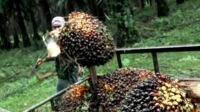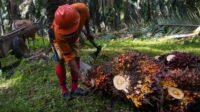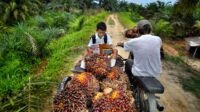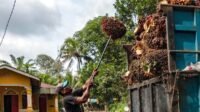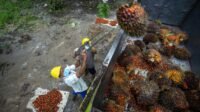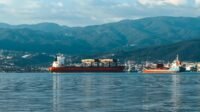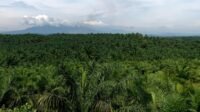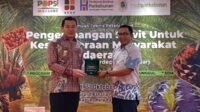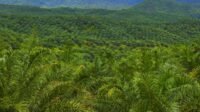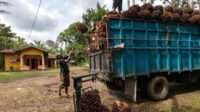PALMOILMAGAZINE, JAKARTA — Amid an atmosphere of growing legal and regulatory uncertainty, Indonesia’s palm oil industry is beginning to feel the pressure. The ripple effect isn’t limited to companies — even plantation workers now face looming risks. At the same time, efforts to improve labor governance are still ongoing. A bipartite platform has been established to strengthen labor protection and compliance within the sector, but challenges remain.
On one such morning, a room filled with industry players, academics, and labor activists gathered for a May Day forum. What was meant to be a moment of reflection on International Workers’ Day quickly turned into a stage for voicing long-held concerns. Amid the tense optimism, Sumarjono Saragih, Chairman of Human Capital Development at GAPKI and founder of Worker Initiatives for Sustainable Palm Oil (WISPO), posed a critical question that broke the surface:
“Has anyone here really confirmed the condition of workers and the state of sustainability? What about the palm oil sector?” he asked, drawing attention to a reality too serious to ignore.
Speaking in a calm yet impactful tone, Sumarjono acknowledged the industry’s achievements. “We’ve had our success stories — IDR 600 trillion in foreign exchange, millions of workers, and exports that sustain our economy. That’s all true,” he said during the May Day 2025 Forum hosted by the Sarbumusi Confederation, themed “Economic Pressure, Workers in Distress,” as reported by Palmoilmagazine.com.
But behind the bright headlines, he delivered a stark warning. “The bad news is, right now, our palm oil industry is facing severe uncertainty. This isn’t just mild turbulence — it’s a storm that threatens everything,” he said.
He echoed a sentiment once expressed by President Prabowo Subianto in his book Paradox Indonesia, stating, “This country is full of paradoxes. And now, we can add one more: legal uncertainty.”
Sumarjono argued that the core issue wasn’t purely economic — it was legal ambiguity that couldn’t be quantified. “If we can measure risk, we can manage it. But this? It’s unmeasurable. How can a major industry survive if it’s constantly threatened by shifting policies and legal uncertainty?” he asked.
At the heart of the problem is the status of forest areas. Around 3 million hectares of oil palm land — cultivated legally by farmers and companies with permits — are now suddenly classified as forest zones. In some cases, government signs have even been posted, declaring the land as state-controlled.
“If these areas are now designated as forest zones, what does that mean for the farmers and companies who’ve been working the land for years? Why was it allowed in the first place?” Sumarjono questioned. “If this issue isn’t resolved, those 3 million hectares will be labeled as ‘black’ palm oil — unsustainable and untraceable. And the global market won’t accept that.”
As the palm oil sector struggles with this looming legal shadow, the message is clear: the uncertainty must be addressed — not only for the sake of business continuity but also for the millions whose livelihoods depend on it. (P2)






